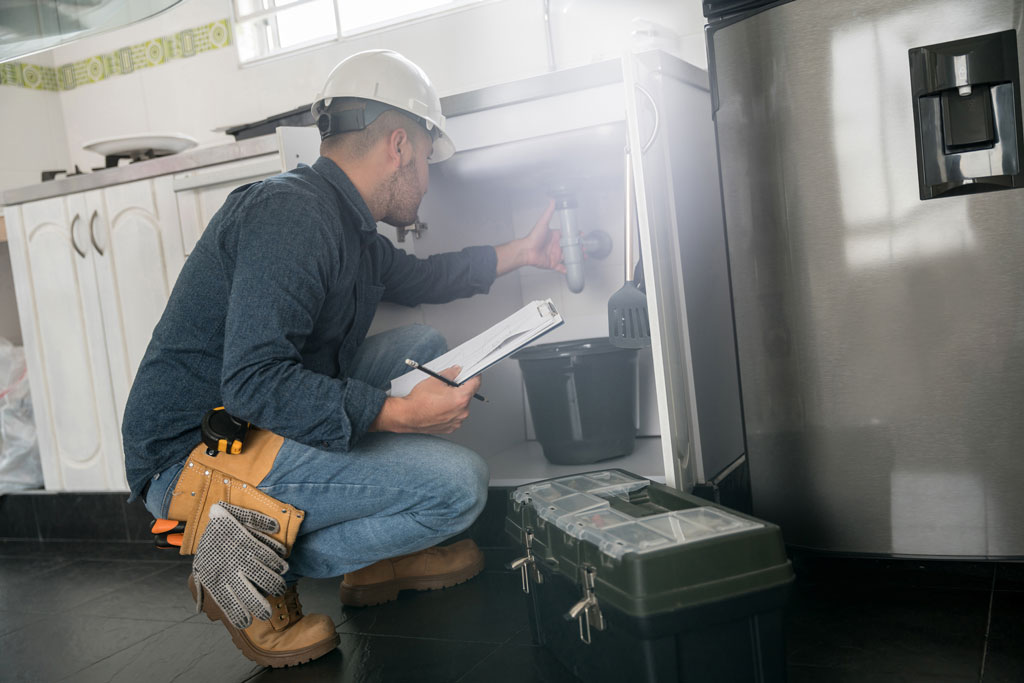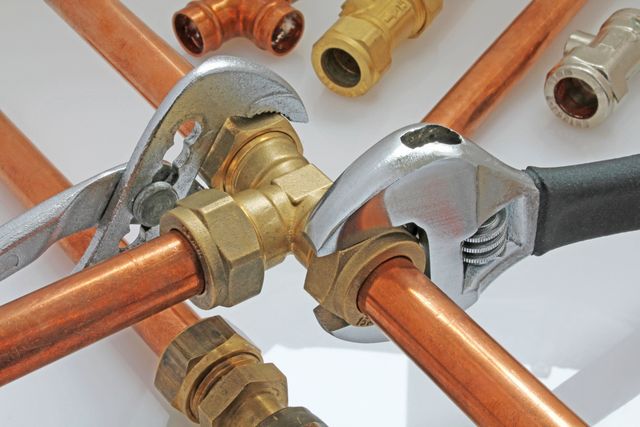What are your opinions concerning Plumbing Emergencies: Tips on What To Do Before?

Plumbing emergency situations can strike at any time, creating tension and possible damage to your home. Whether it's a burst pipeline, a clogged drainpipe, or a leaky tap, recognizing how to take care of the circumstance till a professional plumbing professional shows up can conserve you from additional complications. This short article supplies essential emergency pipes tips to aid you mitigate damages and regain control throughout a pipes dilemma.
Switch off the Supply Of Water
The very first step in any type of plumbing emergency situation is to shut off the water system. For localized problems, such as a dripping faucet or bathroom, turn off the valve near the component. In the case of a major leakage or burst pipeline, situate your home's main water shut-off shutoff and transform it off instantly. Recognizing the location of these valves ahead of time can conserve important time throughout an emergency situation.
Address Small Leaks with Short-lived Fixes
Little leakages can promptly become considerable troubles if left unchecked. Use these momentary solutions until professional assistance gets here:
While these solutions aren't permanent, they can assist decrease water loss and damage.
Unclog Drains Securely
A clogged up drain can be an aggravating and unpleasant issue. Right here's just how to tackle it:
If these techniques don't work, prevent using excessive force, as it may aggravate the obstruction.
Handle Overflowing Toilets
An overflowing toilet can cause immediate disorder. Below's what you must do:
Shut Off Your Water Heater
In certain emergency situations, such as a ruptured pipeline, it's smart to turn off your water heater. This prevents overheating or damages to the device when water quits streaming. Turn off the power supply to the water heater (electrical or gas) and allow it cool down to stay clear of prospective risks.
Momentarily Quit a Burst Pipeline
A burst pipe can cause considerable water damages in minutes. To minimize the problem:
Call a professional plumbing professional right away to address the issue permanently.
Manage Frozen Pipes Very Carefully
In cooler climates, icy pipes are an usual emergency. If you presume a frozen pipeline:
Protect against Further Damages
Taking fast action to reduce damages can save you money and time in the long run. Right here's just how:
. Have an Emergency Pipes Set
Prepare a standard plumbing emergency situation set to take care of minor concerns efficiently. Your package ought to consist of:
Having these tools available can make a substantial difference in your capacity to manage emergency situations.
Know When to Call a Specialist.
While quick fixes can assist momentarily, certain plumbing concerns require instant specialist attention. Call a plumbing technician if:.
Promptly getting in touch with a specialist ensures the issue is dealt with properly and stops more complications.
Conclusion.
Plumbing emergencies can be overwhelming, however with the ideal understanding and devices, you can take care of the scenario successfully till aid gets here. By switching off the water, resolving little leakages, and utilizing short-term repairs, you can reduce damage and keep your home safe. Remember, these tips are temporary solutions; always consult a qualified plumber to handle the root cause of the problem. Preparation and quick thinking are your best allies in any plumbing emergency.
8 Helpful Tips for Managing Plumbing Emergencies at Home
If your plumbing system hasn’t failed once, wait for it because almost everyone has a story to tell. Sometimes, it could be simple emergencies such as a leaking pipe, a blocked cistern, or even a big burst pipe. In situations like this, you need to have some handy tips to save you some money and from possible damages.
Take care of minor issues early.
Sometimes, you could have avoided an emergency by taking proactive measures while it was still early. Some major plumbing emergencies can be a result of an ignored minor issue. We recommend that you have items like plumbing tapes and other related items. A plumbing tape can allow you to manage minor leaks before the plumber arrives.
Cut off the water supply.
This tip is essential in almost any type of leakage problem. For problems like minor leakages in the toilet or kitchen, turn off the supply that takes water to the affected pipes. If the leakage is a major pipe, you must shut off the supply valve to the entire building. This will help you avoid flooding your home and neighbors if you share a flat.
Know your plumbing system
Folks typically move into a new apartment without understanding the water supply around the building. This can prove disastrous if a water emergency arises and the plumber is far away. The previous tip will prove useless if you don’t practice this one. More importantly, know where your water shut-off valve is located – you’ll need that knowledge to prevent potential home floods.
Have some common handy tools
There are lots of plumbing emergencies that you can handle without hiring a plumber. That’s why you must keep some tools available always. Some tools that you can use to fix simple plumbing emergencies easily include plumbing tapes, screwdrivers, thread seal tapes, plungers, pliers, tape measures, and rubber gloves.
Insulate your pipes from cold
You’ll save yourself from many plumbing expenses if you protect your water pipes from the cold. This is because of the harmful effects that cold weather can have on your pipes. During winter, your pipes can burst from being overly expected to freezing temperatures. So, make sure insulators are there to keep the pipes working correctly.
Avoid practices that will clog your toilet.
Many people indulge in practices that can damage the plumbing system of the entire building. One of these is when they use their toilet to dispose-off garbage. They flush all kinds of things, such as paper towels, bandages, hairs, female sanitary products, etc., down the toilet. This will block your toilet in the long run, incurring unnecessary expenditures. Dump such waste in the trash instead.
Check your dials regularly.
Sometimes, there could be leakages in your home without noticing them in time. So, constantly monitor your water meter dial. If the dial is reading when there is nobody using water, this is an indicator that there is leaking. Check for leaks immediately. Call a plumber as soon as possible if you can’t find any.
https://www.constructionplacements.com/8-helpful-tips-for-managing-plumbing-emergencies-at-home/

I am very fascinated by What to Do During a Plumbing Emergency and I am assuming you enjoyed reading the entire piece. Those who appreciated our blog posting plz be sure to share it. Thanks a bunch for your time. Please visit our website back soon.
Call